8 hidden health hazards of Independence Day
You can still have fun in the sun, but just watch out for these holiday mishaps.
Updated on November 1, 2024
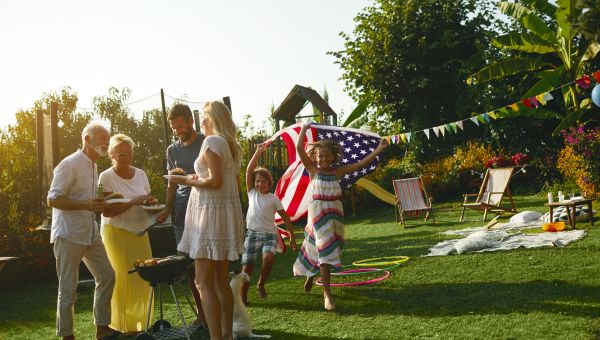
Nothing says Independence Day quite like warm, summer sun and a spread of your favorite barbeque foods. The holiday should be a time for celebrating with friends, family, and fireworks, but some of the season's most enjoyable activities pose hidden risks. Avoiding these holiday hazards takes a bit of planning, but a safe summer soiree is worth the preparation.
To help you and your family enjoy the summer holiday, we enlisted the help of Michael Borunda, MD, a healthy holiday expert and emergency physician with Medical City of Trinity in Trinity, Florida.
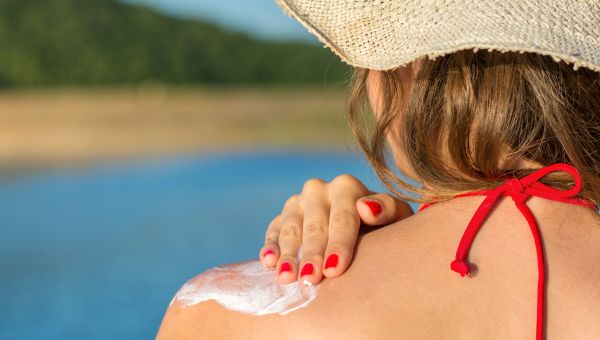
Stay safe in the sun
The summer sun is strong, and without proper protection, its warm rays could leave your skin red, raw, and more susceptible to skin cancer. Sunburn is more than a temporary nuisance. A 2014 study suggests five or more blistering sunburns between the ages of 15 and 20 increase your risk of developing melanoma—a sometimes fatal form of skin cancer—by 80 percent. Even one blistering sunburn in your childhood or adolescent years can almost double your odds of the disease.
Anyone can develop skin cancer, but some are at a higher risk, including those with:
- Fair skin, blonde or red hair, and/or blue or green eyes
- Personal or family history of skin cancer
- History of sunburns or indoor tanning
- Skin that burns or freckles easily
If you plan on spending any amount of time in the sun, there are proven ways to protect your skin. Wearing protective clothing and sunscreen with a Sun Protection Factor (SPF) of at least 30 can help safeguard against overexposure. The Centers for Disease Control and Prevention (CDC) suggests applying sunscreen every two hours, but Borunda thinks you can never be too careful. He also recommends applying immediately after getting out of the water. You should also reapply following exercise or if you’ve been sweating.
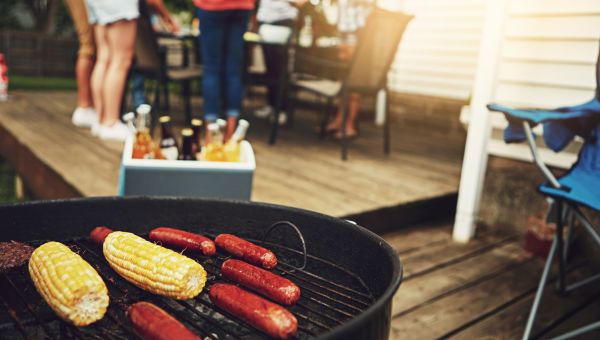
Avoid barbeque burns
No backyard gathering is complete without some burgers from the barbeque, but grilling isn't a hazard-free cooking method. Between 2017 and 2021, an average of 9,079 grill-related home fires were reported annually. Additionally, 22,155 patients went to the ER during the same time period because of grill-related injuries, such as thermal burns. These injuries occur most commonly among children, according to Borunda, so keep kids a safe distance away from the grill.
Take other precautions to protect everyone, like positioning the barbecue away from crowds and ignitable objects. You should also never leave a grill unattended. Cleaning your grill before and after every use can also lower the risk of fire and related injury. Some safety measures vary based on the type of grill.
Charcoal grills should be used outside and with lighter fluid approved for use on charcoal. Never start your charcoal grill with gasoline, since "it lights much faster than you ever can imagine," says Borunda. At worst, this can cause an explosion.
Gas grills should also be used exclusively outdoors. Before and after every use, tubes, valves and gas tanks should be checked for leaks. If the grill fails to ignite on the first try, turn off the gas and wait five minutes before lighting again. "You have to let the gas blow off before you start again," Borunda says.
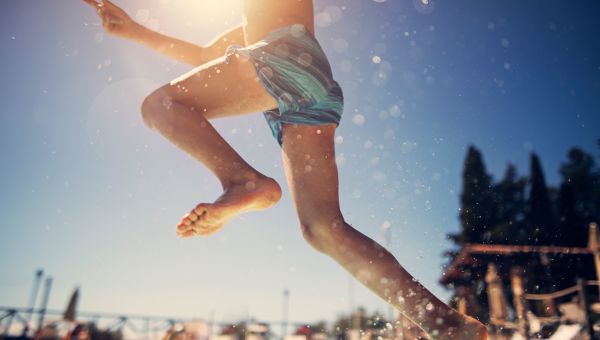
Take poolside precautions
Swimming is a cool way to stay active in the summer, but you should take some precautions, especially with young ones around. Each year, about 4,000 people die of drowning in the United States, according to the CDC. Young children are especially at risk of water-related accidents. It’s the leading cause of death for children ages 1 to 4, and the second biggest cause of death for children ages 5 to 14.
Borunda stresses the importance of keeping children in sight anytime you're around water. At home, self-latching four-sided fences that surround the pool area and separate it from the yard are the safest bet—they can reduce a child’s risk of drowning by 83 percent. Floatation devices, like life vests, can help prevent drowning, but even then, you should never leave a child unattended. Parents and supervisors of young children should remain within reach at all times and free from other distractions, like cell phones, since drowning can happen quickly and quietly.
When wading in public pools, lakes, or oceans, stay near a lifeguard, who can alert you about danger zones and rip currents, but don’t rely on them completely. Accidents happen even when guards are on duty, so keep an eye on children while they are in the water. Bear in mind, "larger waves are more exciting, but they're more dangerous for head and neck injuries," Borunda says.
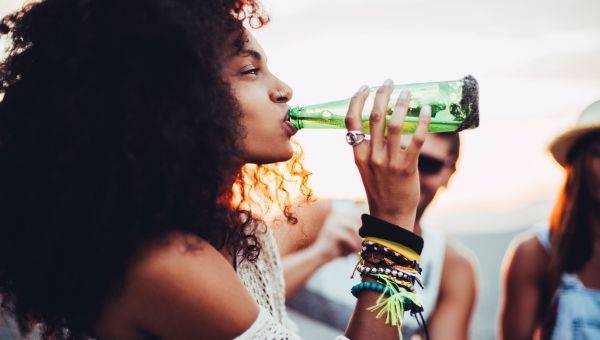
Mind your alcohol intake
In the spirit of summer, you might feel inclined to sip a cocktail or two, but overdoing the booze can have dangerous consequences. Recent statistics suggests Independence Day is among the deadliest U.S. holidays, and alcohol consumption plays a part. Drinking can increase your risk for swimming-, boating-, and driving-related injury and death. The National Institute on Alcohol Abuse and Alcoholism estimates that alcohol may be involved in 60 percent of boating fatalities. If you plan to participate in these activities, reach for a mocktail instead, and encourage other party-goers to do the same.
Drinking in the heat also increases your likelihood of dehydration. Frequent urination from alcohol consumption and excessive perspiration from hot temperatures can cause dangerous fluid loss. To reduce your dehydration risk, stick with nonalcoholic non-caffeinated drinks, like water or seltzer.

Don't fool around with fireworks
Fireworks are an important part of this July holiday, but lighting your own could be extremely dangerous. In 2022, about 31,300 fires caused by fireworks were reported in the U.S. That same year, an estimated 10,200 people were treated in hospital emergency rooms for firework-related injuries.
It is best to leave firework displays up to professionals, opting to enjoy watching them from afar instead. However, if you insist on lighting your own, there are some steps you should take to ensure everyone's safety. Before purchasing and setting off firecrackers, check your city and state laws—not all areas allow the activity. Keep the following in mind, as well.
- Buy only legal products, and don't attempt to make your own.
- Never let children handle fireworks, even after the display.
- Don't hold fireworks as you light them.
- Point firecrackers away from people, homes, and trees.
- Light one firework at a time and don't relight a dud.
Borunda recommends keeping a bucket of water or a hose nearby. In the case something does catch ablaze, it can be put out immediately.
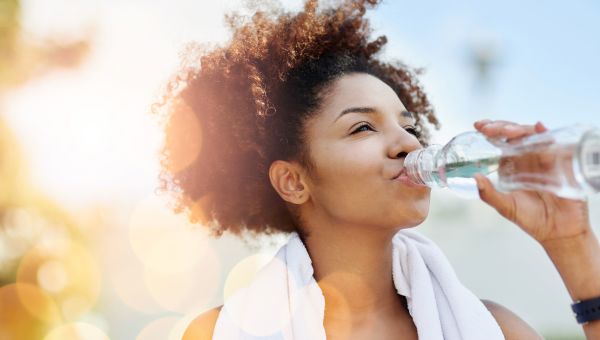
Stay hydrated to skip heat stroke
The 4th of July can be so much fun that staying hydrated ends up near the bottom of many of our priority lists. Unfortunately, without adequate hydration, our bodies can't carry out their normal functions, and in severe cases, too little water can lead to heatstroke or even death. Dehydration is characterized by "dry mouth, excessive sweating, lightheadedness, and maybe some palpitations," Borunda says. This can progress to include stomach cramps, abdominal pain, nausea, vomiting, seizures, and loss of consciousness, he adds. If you stop sweating and instead have hot, red, dry, or damp skin, you could be experiencing heatstroke.
Dehydration doesn't discriminate, but certain groups are at a greater risk. They include
- Older adults
- Infants and children
- People who have chronic illnesses like diabetes, heart disease, kidney disease, and obesity
- Those who work or exercise outside
- Anyone presenting with a fever
Poor circulation, alcohol consumption, drug use, mental illness, and having frequent sunburns can also increase the risk for dehydration.
Drink plenty of water or other hydrating fluids on hot summer days. Some people, like those with diabetes and kidney disease, have fluid restrictions, so check with your doctor about the right amount of water for you. Wearing light-colored and loose-fitting clothing and finding a spot in the shade can help prevent dehydration and heatstroke. Be especially if you're going to be out in the midday sun; don't overexert yourself and take frequent breaks.
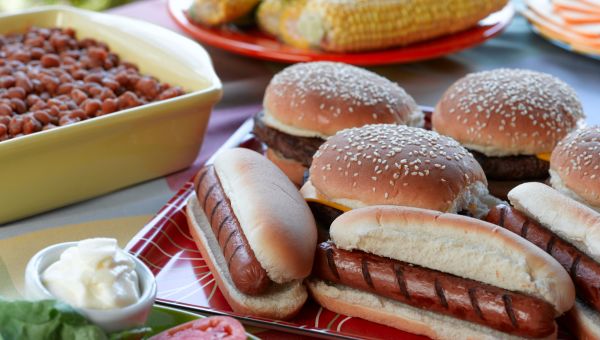
Don't forget about food safety
Barbecues and outdoor parties are breeding grounds for foodborne illness, which have a tendency to multiply in warmer temperatures. Despite not being invited to the party, these invisible bacteria all too often make an appearance on your picnic tables, in mayonnaise-based salads and undercooked meats.
Foodborne illnesses like Salmonella, E. coli, and Listeria often cause symptoms like nausea, vomiting, stomach cramps, and diarrhea, but certain populations—children, older adults, and pregnant women—are at a higher risk for more serious complications, including death.
To ensure your guests have an enjoyable day—sans sickness—take the following precautions.
- Wash your hands before and after handling food.
- Thaw and marinate meats in the refrigerator, not on the counter.
- Cook food thoroughly, especially meat and poultry.
- Keep hot foods at or above 140 degrees Fahrenheit.
- Keep cold foods at or below 40 degrees Fahrenheit
When it comes to setting up the buffet table, Borunda recommends bringing out food just before you're ready to eat. "Bring [the food] out of the cooler, serve, eat, and put the food away," he says.
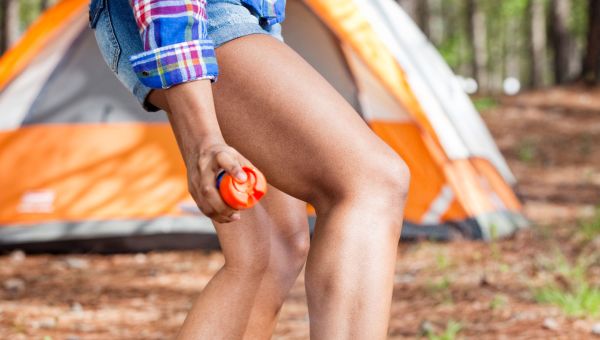
Beware of bug bites
Other unwelcome party guests, including bees, ticks, and mosquitoes, can certainly become a nuisance at a holiday barbeque. Not only do mosquitoes and ticks cause itchy bumps, but they can also transmit diseases like Zika, West Nile virus, and Lyme disease.
It's possible to prevent tick and mosquito bites—apply an Environmental Protection Agency certified insect repellant made with active ingredients like DEET or Picaridin. If using sunscreen, apply your SPF first and allow it to dry before spraying repellant. Wearing pants, long-sleeve shirts, socks, and closed-toe shoes can also help keep bites at bay.
Bee and wasp stings are another summertime concern. These insects often build their hives in trees and under roof eaves. Check these areas before your next gathering and avoid playing or congregating if nests are present. Cover as much of your body with smooth, light-colored clothing as possible and skip spraying perfume or cologne when you know you'll be spending time outside. And let us not forget the cardinal rule—should a stinging insect buzz by you, remain still and calm.

Wu S, Han J, Laden F, Qureshi AA. Long-term ultraviolet flux, other potential risk factors, and skin cancer risk: a cohort study. Cancer Epidemiol Biomarkers Prev. June 1, 2015.
American Cancer Society. Key Statistics for Melanoma Skin Cancer. January 12, 2021.
American Academy of Dermatology Association. Skin cancer. June 1, 2021.
Skin Cancer Foundation. Sunburn & Your Skin. June 2019.
Centers for Disease Control and Prevention. Sun Safety. April 28, 2021.
National Fire Protection Association. Grilling Fires. Accessed November 1, 2024.
University of Rochester Medical Center. Prevent Injury Around Barbecue Grills. Accessed June 29, 2020.
Centers for Disease Control and Prevention. Drowning Facts. May 16, 2024.
National Institutes on Alcohol Abuse and Alcoholism. Risky Drinking Can Put a Chill on Your Summer Fun. May 2021.
The National Safety Counsel. Summer & Alcohol Safety. Accessed June 29, 2020.
Fireworks Safety. National Fire Protection Association. Accessed November 1, 2024.
U.S. Consumer Product Safety Commission. 2018 Fireworks Annual Report. June 2019.
Mayo Clinic. Dehydration. September 19, 2019.
Mayo Clinic. Heat Stroke. August 18, 2020.
Centers for Disease Control and Prevention. Warning Signs and Symptoms of Heat-Related Illness. September 1, 2017.
MedlinePlus. Dehydration. August 7, 2019.
U.S. Food and Drug Administration. Barbecue Basics: Tips to Prevent Foodborne Illness. June 14, 2021.
Mayo Clinic. Listeria infection. January 18, 2020.
Centers for Disease Control and Prevention. Salmonella. December 5, 2019.
Centers for Disease Control and Prevention. Listeria. December 12, 2016.
Mayo Clinic. Salmonella. October 11, 2019.
Centers for Disease Control and Prevention. E. coli. February 2, 2021.
More On


video

article

slideshow


video


video
